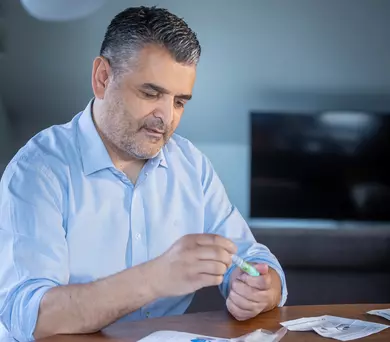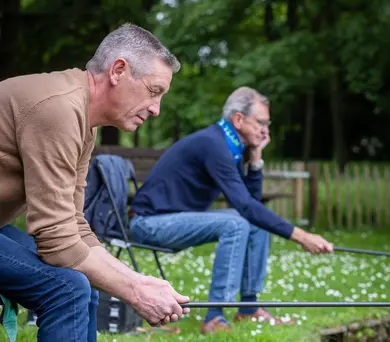TIMELY DETECTION IS IMPORTANT

Every year, approximately 5000 residents in Flanders are told they have colon cancer. Colon cancer is the second most common cancer in women (after breast cancer) and third most common cancer in men (after lung and prostate cancer). Every year in Flanders approximately 1500 people die from this disease.
Colon cancer develops very slowly. In addition, polyps can be detected and removed before cancer cells form. This makes colon cancer one of the diseases that qualify for organising a screening programme.
That is why the Flemish government organises a Colon Cancer Screening Programme in which all men and women aged 50 to 74 receive a free stool test every two years.
Early detection has some significant benefits: Since the disease or polyps are detected earlier, (more intensive) treatment can be avoided and the chance of recovery is greater.
Why should I participate?
Colon cancer develops slowly. It takes an average of 10 years for a polyp (a bulge in the colon wall) to become a malignant tumour. This means that colon cancer can usually be detected early, even before it actually becomes cancer. If colon cancer is detected at an early stage, 95% of people are still alive five years after diagnosis.
When colon cancer develops, you do not have any symptoms at first. As a result, the disease is often not detected until late. That is why it is important to detect colon cancer before you have symptoms.
You decide for yourself whether to participate or not. Inform yourself well. You will then know what the examination entails and what its purpose is.
You should not participate if:
• you have been diagnosed with colon cancer in the past 10 years or are currently being treated for colon cancer;
• you have already taken a stool test in the past 2 years;
• you have had a colonoscopy in the past 10 years;
• you have had a virtual colonoscopy in the past 4 years.




TIMELY DETECTION IS IMPORTANT





